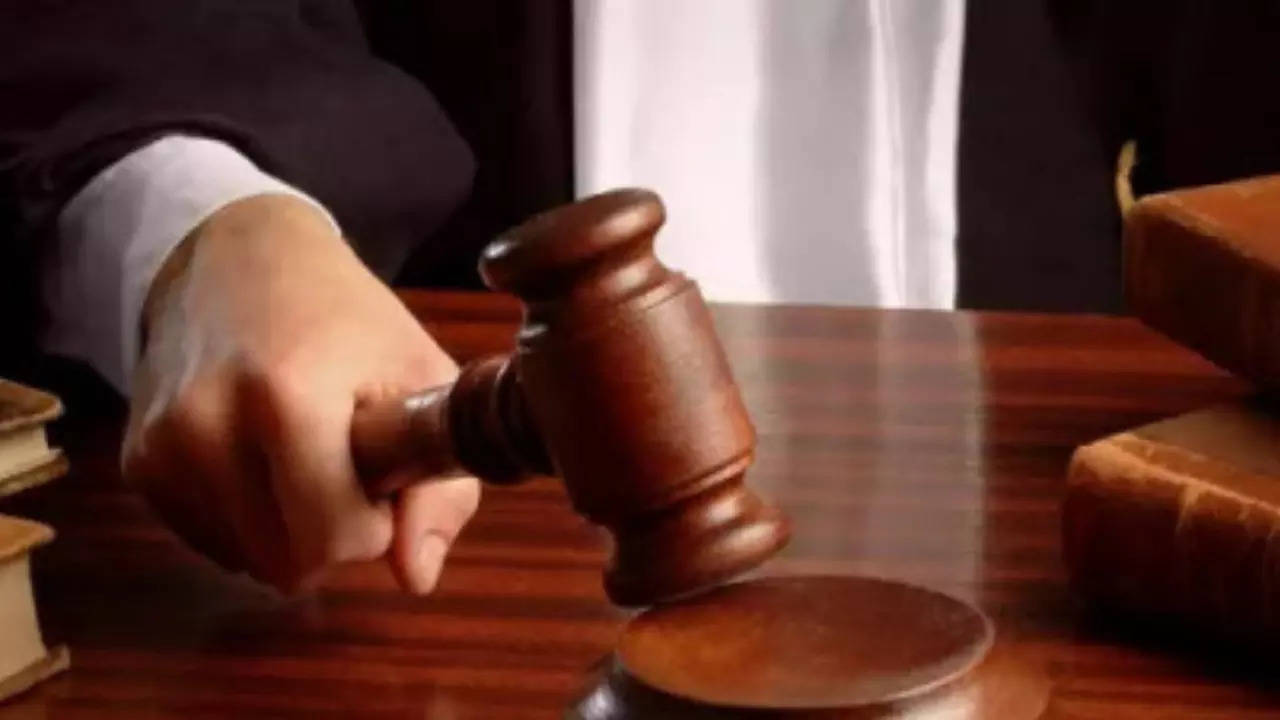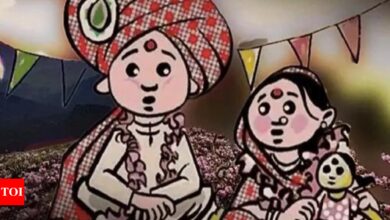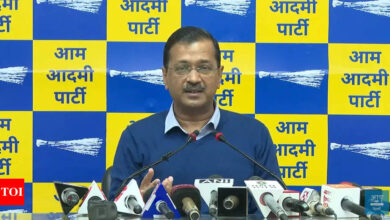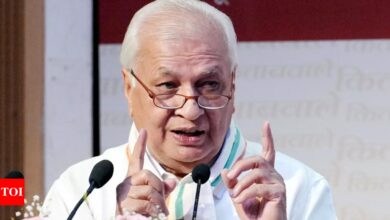India
Supreme Court seeks replies from 7 states on anti-conversion law | India News

[ad_1]
NEW DELHI: The Supreme Court on Friday sought responses from seven states on petitions challenging the validity of Religious Freedoms Act mandating prior permission from authorities for converting from one religion to another, even for marriage, and also entertained a plea for transfer of similar petitions pending in various high courts. The pleas said the laws violate the fundamental right to freedom of religion.
These laws were enacted by Uttar Pradesh, Madhya Pradesh, Gujarat, Himachal Pradesh, Uttarakhand, Karnataka and Jharkhand ostensibly to curb conversions through allurement, deceit or marriage, the latter being referred to in quarters as “love jihad”.
A bench of Chief Justice DY Chandrachud and Justice PS Narasimha sought responses from these states to the petitions challenging the legislations on the ground that these violated the right to freedom of religion, a fundamental right guaranteed under the Constitution. It also sought responses from the petitioners, who had filed petitions in the respective state HCs challenging the provisions of these laws, as to why their pleas should not be shifted to the apex court for a consolidated hearing to avoid duplicity of judicial adjudication.
Attorney general R Venkataramani opposed transfer of petitions from the HCs. “The high courts are well suited to adjudicate the validity of the laws enacted keeping in mind the circumstances peculiar to the state,” he said. The CJI-led bench said it would hear the AG’s objections to the plea of transfer on the next date of hearing.
Senior advocate Arvind Datar, appearing for petitioner Ashwini Upadhyay, pleaded that the IPC does not have a provision which makes conversion through allurement, deceit or fraud an offence. “The petition could be referred to the Law Commission of India for a proper study and appropriate recommendation to the Union government,” Datar said.
It was opposed by advocate Dushyant Dave, who said Upadhyay had not approached the court with clean hands as he deliberately hid the fact from the SC that he had filed similar petitions in the past and withdrawn it. Upadhyay’s petition was converted into a suo motu exercise by a bench headed by Justice MR Shah, which had termed non-voluntary conversions could threaten national security.
Days after Justice Shah made those observations, CJI Chandrachud had shifted to his bench the case and bunched it with other petitions, including those filed by Teesta Setalvad’s NGO and Jamiat Ulama-e-Hind. The chances of SC referring Upadhyay’s petition to the Law Commission appeared bleak as the CJI said, “Why should SC refer a petition or issue to the Law Commission? You (Upadhyay) independently approach the Law Commission and if the Commission thinks it appropriate, it would take it up.”
These laws were enacted by Uttar Pradesh, Madhya Pradesh, Gujarat, Himachal Pradesh, Uttarakhand, Karnataka and Jharkhand ostensibly to curb conversions through allurement, deceit or marriage, the latter being referred to in quarters as “love jihad”.
A bench of Chief Justice DY Chandrachud and Justice PS Narasimha sought responses from these states to the petitions challenging the legislations on the ground that these violated the right to freedom of religion, a fundamental right guaranteed under the Constitution. It also sought responses from the petitioners, who had filed petitions in the respective state HCs challenging the provisions of these laws, as to why their pleas should not be shifted to the apex court for a consolidated hearing to avoid duplicity of judicial adjudication.
Attorney general R Venkataramani opposed transfer of petitions from the HCs. “The high courts are well suited to adjudicate the validity of the laws enacted keeping in mind the circumstances peculiar to the state,” he said. The CJI-led bench said it would hear the AG’s objections to the plea of transfer on the next date of hearing.
Senior advocate Arvind Datar, appearing for petitioner Ashwini Upadhyay, pleaded that the IPC does not have a provision which makes conversion through allurement, deceit or fraud an offence. “The petition could be referred to the Law Commission of India for a proper study and appropriate recommendation to the Union government,” Datar said.
It was opposed by advocate Dushyant Dave, who said Upadhyay had not approached the court with clean hands as he deliberately hid the fact from the SC that he had filed similar petitions in the past and withdrawn it. Upadhyay’s petition was converted into a suo motu exercise by a bench headed by Justice MR Shah, which had termed non-voluntary conversions could threaten national security.
Days after Justice Shah made those observations, CJI Chandrachud had shifted to his bench the case and bunched it with other petitions, including those filed by Teesta Setalvad’s NGO and Jamiat Ulama-e-Hind. The chances of SC referring Upadhyay’s petition to the Law Commission appeared bleak as the CJI said, “Why should SC refer a petition or issue to the Law Commission? You (Upadhyay) independently approach the Law Commission and if the Commission thinks it appropriate, it would take it up.”
#Supreme #Court #seeks #replies #states #anticonversion #law #India #News






